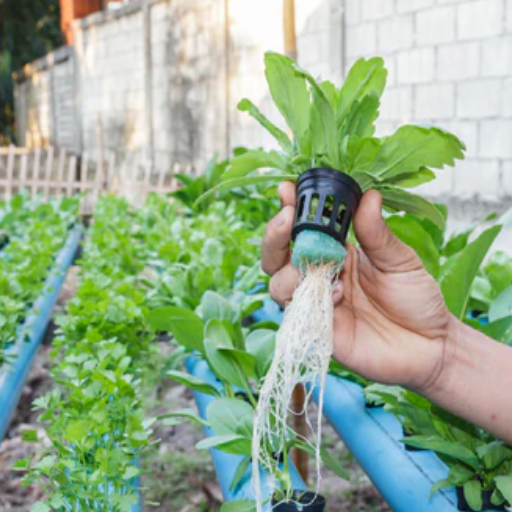Hydroponics truly is revolutionizing modern agriculture as an efficient method to grow plants without soil-based media, within controlled environmental conditions. But the matter of employing organic fertilizers has recently become far more discussed among growers and researchers. How do these organic nutrients—inherently linked to traditional soil farming—come into play for hydroponics, a now precision-based cultivation system? This article takes a deep dive into how organic fertilizer fits into hydro systems, with respect to its positive and negative attributes, and investigates the science behind optimizing nutrient solutions for vigorous plant growth. For those who have been hydroponing for quite some time or merrily curious fledglings, here is an intervention that sustains agricultural practices with innovations.
Understanding Organic Hydroponics
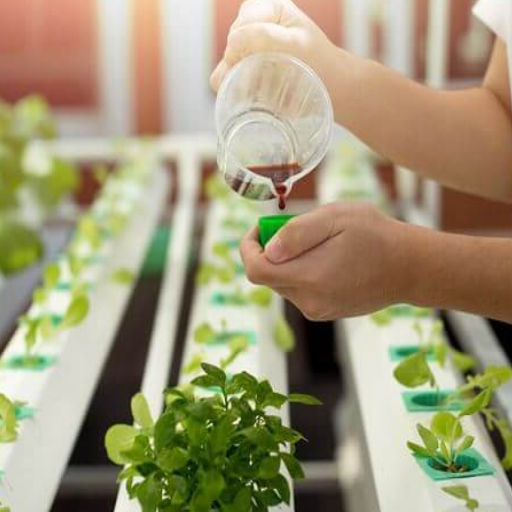
What is Organic Hydroponics?
Organic hydroponics means any soil-free cultivation in which a nutrient solution prepared through organic means is applied to plants grown in such an environment. Conventional hydroponics usually uses synthetic fertilizers while organic hydroponics uses compost teas, fish emulsion, and other biologically derived inputs. This method goes with the preparations of organic farming with natural and sustainable practices, and also allows the plant to engage in an efficient process in resource conservation through hydroponics.
Further, organic hydroponics lies in the act of creating a balanced ecosystem in a nutrient solution. This is why growers often choose to inoculate the system with microbial life to break down the organic material from which the plants can derive their nutrients. Much like the microorganisms found in healthy soil, these organisms are important in the cycling of nutrients and overall health of plants. This symbiotic relationship, thriving in nutrient solutions, promotes the plants themselves, but it enhances resistance to diseases as a beneficial side effect when compared with synthetic systems.
Key Challenge: Organic hydroponics presents an opportunity to practice eco-friendly and sustainable farming. Some of the peculiar challenges are the deposit of some organic nutrients, which, aside from the technicalities, could block the hydroponic system; meanwhile, ensuring adequate oxygen levels dissolved in the nutrient solution becomes critical to avert any anaerobic conditions.
Benefits of Organic Nutrients in Hydroponic Systems
- Improved Microbial Activity: Organic nutrients initiate the growth of favorable microorganisms into the system in hydroponics, and these microbes are responsible for the breakdown of complex organic molecules into plant-available forms, which improves the efficiency of nutrient uptake.
- Enhanced Sustainability: The use of organic inputs can cut down on synthetic fertilizers, which often have an incredible energy footprint when producing. When organic nutrient sources are used, the system goes a long way in achieving its sustainability goals.
- Improved Plant Quality: Various crops grown with organic nutrients possess higher quality attributes, whereas the flavor, aroma, and nutrition reach top standards. Studies show that antioxidants, vitamins, and helpful phytochemicals tend to be mostly found in high amounts in organic plants.
- Eco-Friendly Waste Management: The organic hydroponic system can make use of such composted wastes as plant residues or animal manures for nutrient sources, reducing organic waste while adding value to it.
- Reduced Risk of Salinity Build-Up: Most of the organic fertilizers release their ingredients slowly and steadily, unlike synthetic fertilizers, which rapidly result in excessive salinity levels, representing a problem in the growing medium.
Comparison: Organic vs. Synthetic Nutrient Solutions
Organic fertilizers are good for soil health and slow nutrient release, whereas synthetic fertilizers work fast for growth but might spoil the soil and harm the environment with time.
| Key Point | Organic | Synthetic |
|---|---|---|
| Nutrient Level | Low, variable | High, consistent |
| Release Rate | Slow, steady | Fast, short-lived |
| Soil Impact | Enriches, improves | Depletes, harms |
| Plant Safety | Low burn risk | High burn risk |
| Eco Impact | Minimal pollution | High pollution risk |
| Cost | Higher | Lower |
| Ease of Use | Harder to apply | Easy to apply |
| Longevity | Long-term benefits | Short-term effects |
Types of Organic Fertilizers for Hydroponics
Liquid Seaweed as a Hydroponic Nutrient
Liquid seaweed is an organic fertilizer made with particular marine algae, such as kelp, which are harvested and processed into a liquid form for farming purposes. Its benefits as a nutrient for hydroponics can be accounted for mainly by its synergistic mixture of trace minerals, plant hormones (auxins, gibberellins, and cytokinins), vitamins, enzymes, and amino acids.
Research suggests that seaweed extracts enhance nutrient uptake by improving root zone health and nutrient availability. In particular, liquid seaweed enhances tolerance to environmental stresses such as drought and salinity, which are key elements toward the advancement of hydroponic systems.
Fish Emulsion: A Natural Nutrient Source
Fish emulsion is an excellent organic fertilizer that has been made from fish oils and fish refuse or other byproducts from fish processing. Being nutrient-rich, fish emulsion supplies generous amounts of nitrogen, phosphorus, and potassium, which are vital macronutrients for plant growth.
Typical Composition: Fish emulsion generally contains 2-5% nitrogen, 1-3% phosphorus, and 0.3-1% potassium, although these concentrations vary depending upon the processing techniques and source materials employed.
Compost Teas and Their Unique Properties
The compost tea serves as a biologically rich and versatile supplement to conventional fertilizers, offering nutrition and protection to plants. Compost-tea applications involve brewing compost aerobically in water to allow the development of very complex communities of microorganisms, which may include beneficial bacteria, fungi, protozoa, and nematodes.
A key advantage compost teas have is that they bolster plant immune systems and fight soil-borne diseases. When applied as a foliar spray, it creates a microbial cloak on plant surfaces that inhibits pathogens from establishing themselves by outcompeting them.
Application Methods for Organic Hydroponic Nutrients
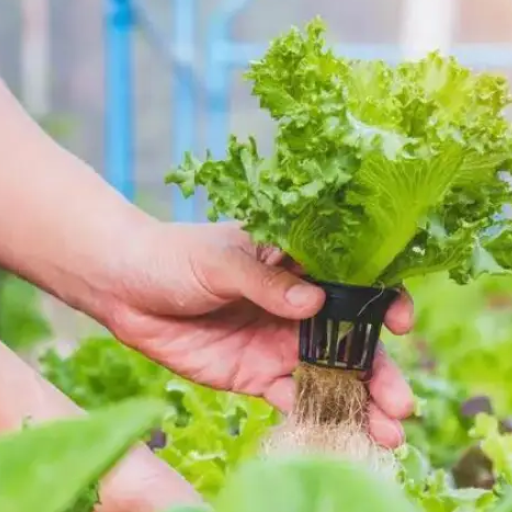
Integrating Organic Fertilizers into Hydroponic Systems
A slight methodical approach must be observed when organic fertilizers are used in hydroponic systems, which considers nutrient availability and clogging of the system. Substances like liquid compost extracts or fish emulsions are generally favored for their natural nutrient composition and sustainability.
There is one critical factor for implementing organic fertilizer—maintaining microbial balance. Usually, organic solutions contain some beneficial organisms that aid nutrient solubilization and uptake by plants. Proper oxygen tension and a pH value between 5.5 and 6.5 should be maintained as much as possible to sustain microbial populations and nutrient bioavailability.
Step-by-Step Guide to Using Organic Nutrient Solutions
- Analyze Water Quality: Start analyzing the water source for pH, minerals, and potential contaminants. The best water quality must be there to avoid interactions causing the hindrance of nutrient availability. Maintain a pH level of 6.0 to 6.5 in an organic hydroponic system.
- Select Suitable Organic Nutrient Products: Organic nutrient solutions should be selected that best suit the special needs of one’s plants. Liquid seaweed, fish emulsion, and compost teas rank among the most common forms. Ensure that these products are certified organic.
- Dilution and Solution Preparation: Higher concentrations would create salt build-up or toxic conditions, while lower concentrations would cause nutrient deficiency. Mix thoroughly for a homogenous solution.
- Monitor and Adjust Nutrient Delivery: Utilize state-of-the-art monitoring technologies, such as EC meters, for accurate dosing of nutrients, hence maintaining nutrient levels at a constant.
- Inject Slow-Release Nutrients: Upgrade the system by adding slow-reacting organic supplements, like rock phosphate or bone meal; they stand as nutrient reservoirs that slowly dissolve in solution.
- Real-Time Monitoring System Utilization: Advanced real-time monitoring systems like pH sensors and nutrient management software generate actionable data that optimizes plant health and growth.
- Preventing and Managing Biofilm Accumulation: Biofilms may develop in tanks and irrigation lines where organic nutrient solutions are used. Use non-invasive cleaning agents that are compatible with organic systems.
- Evaluate Plant Response: Observe regularly for crop growth patterns, leaf color, and other indicators of health. Plants raised in organic hydroponic systems may show slightly slower initial growth than their conventional counterparts.
Maintaining Nutrient Balance in Hydroponics
Maintaining a nutrient balance under hydroponics will lead to an optimal growth environment for plants, maximizing crop yields. Hence, it requires exact proportions of macro and micronutrients, with slight deviation from imbalance leading to deficiency or toxicity, adversely affecting plant health.
Of the major macronutrients, nitrogen (N), phosphorus (P), and potassium (K) must be supplied in adequate ratios depending on the crop’s stage. For example, nitrogen is required in high quantities during the vegetative stage for leaf development, whereas phosphorus and potassium are largely required during the flowering and fruiting stages.
Important Note: The pH range from 5.5 to 6.5 is considered ideal as it allows for nutrient availability and does not allow mineral precipitation to occur.
Achieving Optimal Plant Growth in Hydroponics
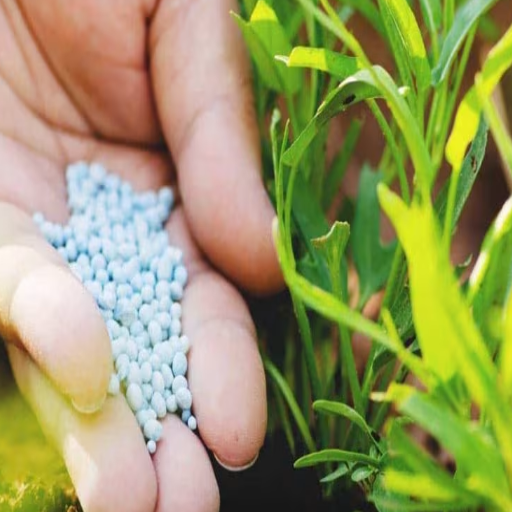
Monitoring Nutrient Levels and pH Balance
Traditional and correct, procedural monitoring of nutrient levels and pH range defines standard requirements for an upscale hydroponic maintenance of plants. Modern instruments are put to use in monitoring, like EC meters, by which the strength of nutrient solution can be checked at any time, thus ensuring that important elements remain within optimum levels.
Selecting the Right Organic Products for Different Plants
Choosing suitable organic products for various plants requires an in-depth knowledge of their specific nutritional requirements, growth stages, and environmental preferences. Organic fertilizers such as compost, bone meal, and seaweed extracts provide essential nutrients in the form of nitrogen, phosphorus, or potassium in different proportions.
- Leafy vegetables: Require heavy nitrogen doses for achieving lush leaf growth
- Fruiting plants, like tomatoes or peppers, need phosphorus fertilizers as much as possible during flowering and fruiting
Tips for Growing Organically in Hydroponic Systems
- Choose Certified Organic Nutrient Solutions: Nutrient solutions designated as organic should be selected in order to maintain compatibility with organic growing regulations.
- Pest Management with Biocontrol Agents: Utilize biocontrol agents such as beneficial nematodes, predatory mites, and microbial inoculation for organic biological control options.
- Observe Water Quality and pH Levels: Organic hydroponics requires accurate monitoring of water quality, pH, and EC levels using high-end measurement sensors.
- Employ Organic Growing Media: Use sustainable and organically-approved growing media such as coconut coir, peat moss, or perlite.
- Aerate and Oxygenate: Ensure nutrient solutions are well-aerated and well-oxygenated, as these conditions promote vigorous root activities and microbial action.
- Set Up a Closed Water Loop: Recycle water with the system to reduce environmental footprint while conserving precious resources.
- Build Upon Microbial Diversity: Promote an environment with multiple microorganisms by adding organic inoculants or compost extract into the system.
Emerging Trends in Organic Fertilizers for Hydroponics
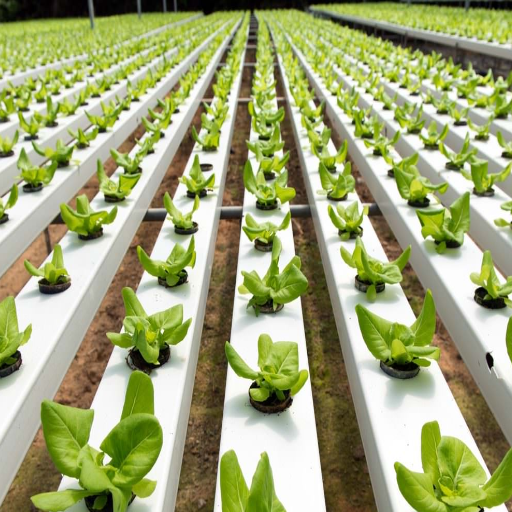
Advancements in Bio-Based Nutrient Solutions
In the biofertilizer industry, considerable developments have been carried out due to the constant demand for sustainable and effective nutrients in hydroponics. In new generations of fertilizers, beneficial microorganisms in fact promote nutrient harvesting and plant development.
The other interesting advancement is the incorporation of plant-based extracts as nutrient sources. Such bio-extracts, coming maybe from seaweed, alfalfa, or some other sustainable plant material, are rich in the very macro- and micronutrients required for the best growth from plants.
Innovative Sustainable Farming Practices
Innovative sustainable farming practices are the backbone of modern agricultural systems, ensuring that productivity continues into the distant future while at the same time preserving the environment. In vertical farming, space is the most precious commodity, with cropped plants being cultivated in stacked layers in a controlled environment.
Frequently Asked Questions (FAQ)
A: Organic fertilizers for hydroponics refer to natural substances that provide essential nutrients to plants grown in a soilless environment. These fertilizers nurture plants without chemical fertilizers and thus support and adhere to organic production standards under the National Organic Standards Board (NOSB) guidelines.
A: Organic fertilizers help hydroponically grown plants naturally absorb nutrients, leading to healthier growth. One should use organic nutrients to improve the quality of hydroponic plants, whereby such plants are guaranteed the supply of a balanced formula of essential nutrients responding to their level of growth.
A: Yes, homemade nutrients can be used successfully in hydroponics, and many organic growers DIY hydroponic nutrient solutions with locally readily available organic additives to provide nutrients for plant growth without relying on commercial fertilizers.
A: Use of organic fertilizer in hydroponic systems has the advantage of improving the soil’s health, availability of nutrients, and elimination of undesirable chemicals. These processes go hand-in-hand for sustainable gardening, whereby plants get the nutrients required for their growth.
A: Several fertilizers can be used in hydroponics, such as organic nitrogen sources, kelp meals, and compost teas. These organic fertilizers are preferred, as they follow the organic agriculture principles and help in building a sustainable hydroponics system.
A: Yes, there are different organic fertilizers meant for the various systems, be it deep water culture, drip, etc. These fertilizers are specially prepared for types of hydroponic plants and their rates of nutrient absorption.
A: The characteristic of the organic fertilizers to be considered for your hydroponic plants are their nutrient composition, rate of release, and system compatibility. Make sure that the fertilizers you select provide a full spectrum of nutrients so that plants grow healthy in an environment free from soil.
References
- Purdue University: Organic Crop Production in Hydroponic Systems – This is a very elaborate academic discussion on organic hydroponics and the types of organic fertilizers that can be employed.
- University of New Hampshire Extension: Hydroponics for the Home User – This educational resource treats issues of hydroponics and fertilizers in these systems.
- PubMed Central (PMC): Evaluation of Hydroponic Systems for Organic Lettuce – A scientific inquiry into the evaluation of using liquid organic fertilizers in hydroponic systems for the production of lettuce.



